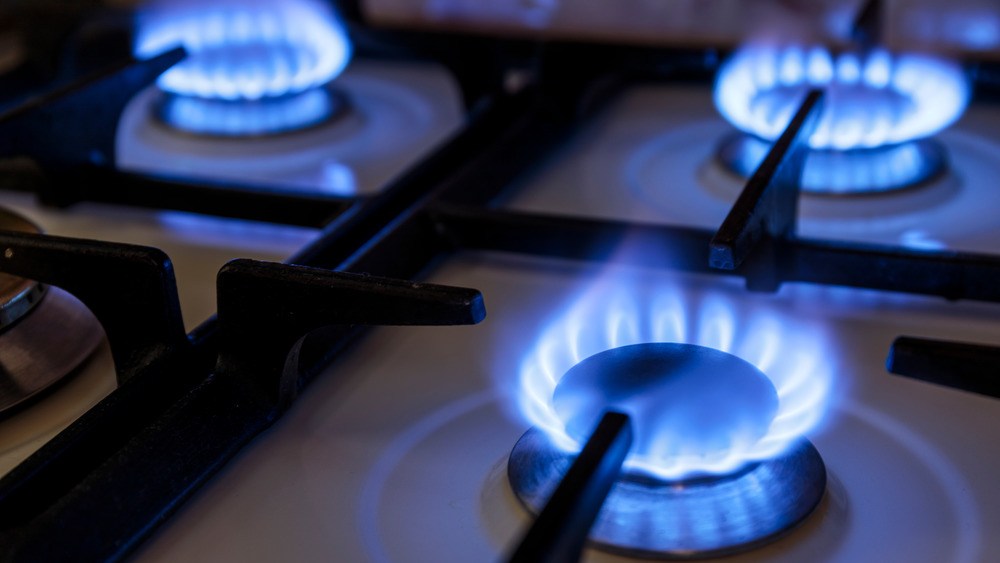This Major Kitchen Appliance Is Surprisingly Bad For The Environment
When you want to do your part for the environment, it seems like life gets tougher by the day. Even if you leave a minimal ecological footprint, you still produce two tons of carbon dioxide a year just by eating and breathing (via Science Daily). When you start to factor together the amount of waste that transportation, food, and regular lifestyle necessities produce in the course of a year, we individually end up contributing about 21.8 tons of carbon dioxide to the atmosphere (via Slightly Unconventional). If you want to do your part and take greater steps to helping the earth, one of the first steps you could take to reduce your impact might entail throwing away your gas stove.
Those of us who rely on natural gas to cook with might have to live more green to offset the damage our stoves do to the environment. According to The Washington Post, cities across America have started to shift toward electricity to heat homes and for cooking, producing far less CO2 emissions than their natural gas counterparts. This energy-switch got an extra push thanks to America trying to meet climate goals by 2050, helping these electricity-based mandates move through state legislature and become local law. In all, this shift might help slash up to 12.3 percent of the country's emissions, which originate from natural gas usage in buildings. While this issue seems pretty clear-cut, not everyone is on board.
An environmental battleground in your kitchen
Times seem tough for the natural gas lobby. With new laws mandating the use of electricity to heat and power houses and stoves, the American Gas Association has begun campaigning to reverse these ordinances and stop more states from switching to electricity (via The Washington Post). Despite this trade group fighting the mandates, urban planners and most municipalities have embraced going green through electricity, meaning we might see an end to this classic method of cooking in every home sometime in the next few decades.
Only time can tell what happens to natural gas, but considering the push for states to go eco-friendly, it looks like we may need to get used to cooking on electric ranges in the future. Despite the switch, we can still feel good limiting our individual carbon output, and with any luck, we can cut out almost 12 percent of America's environmental footprint.

